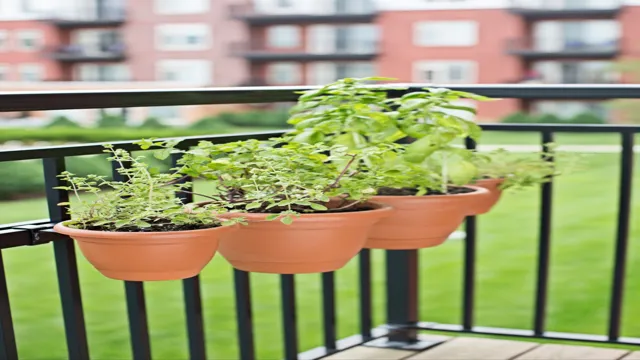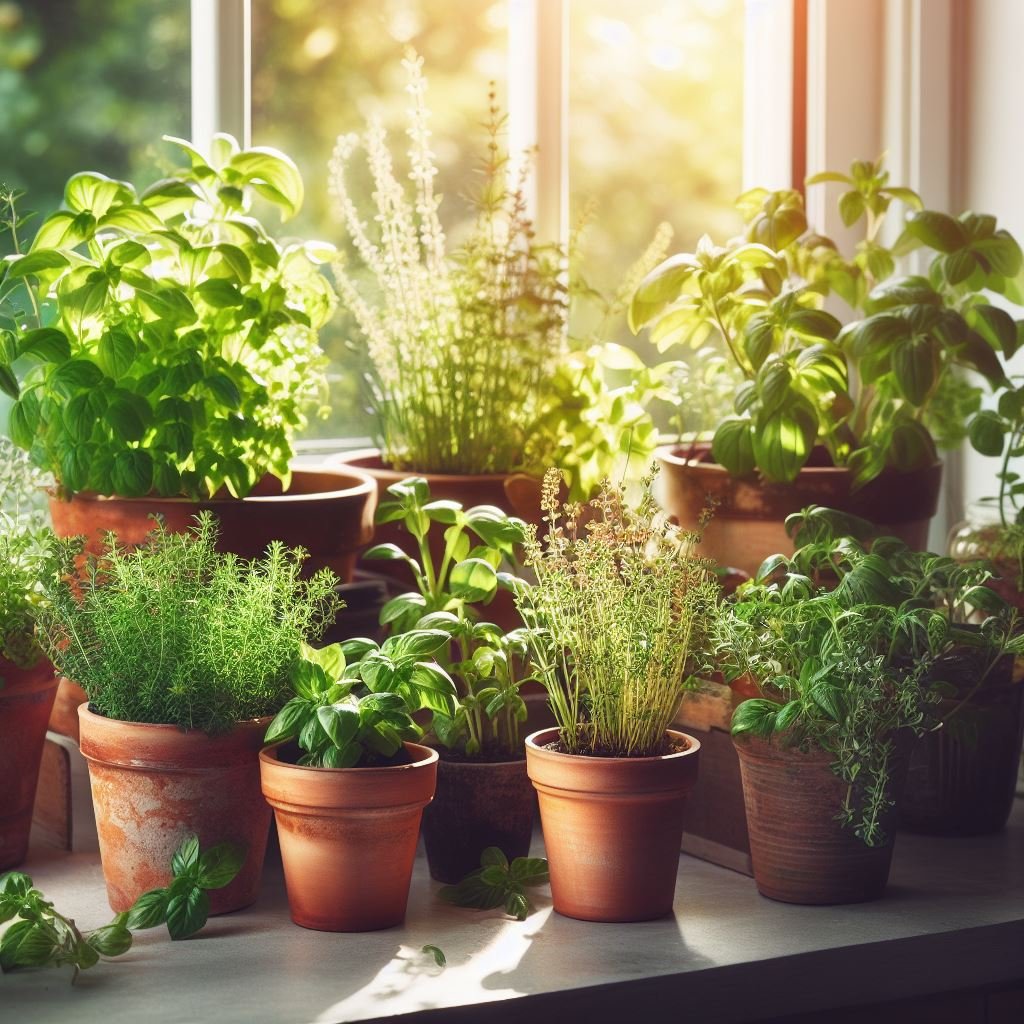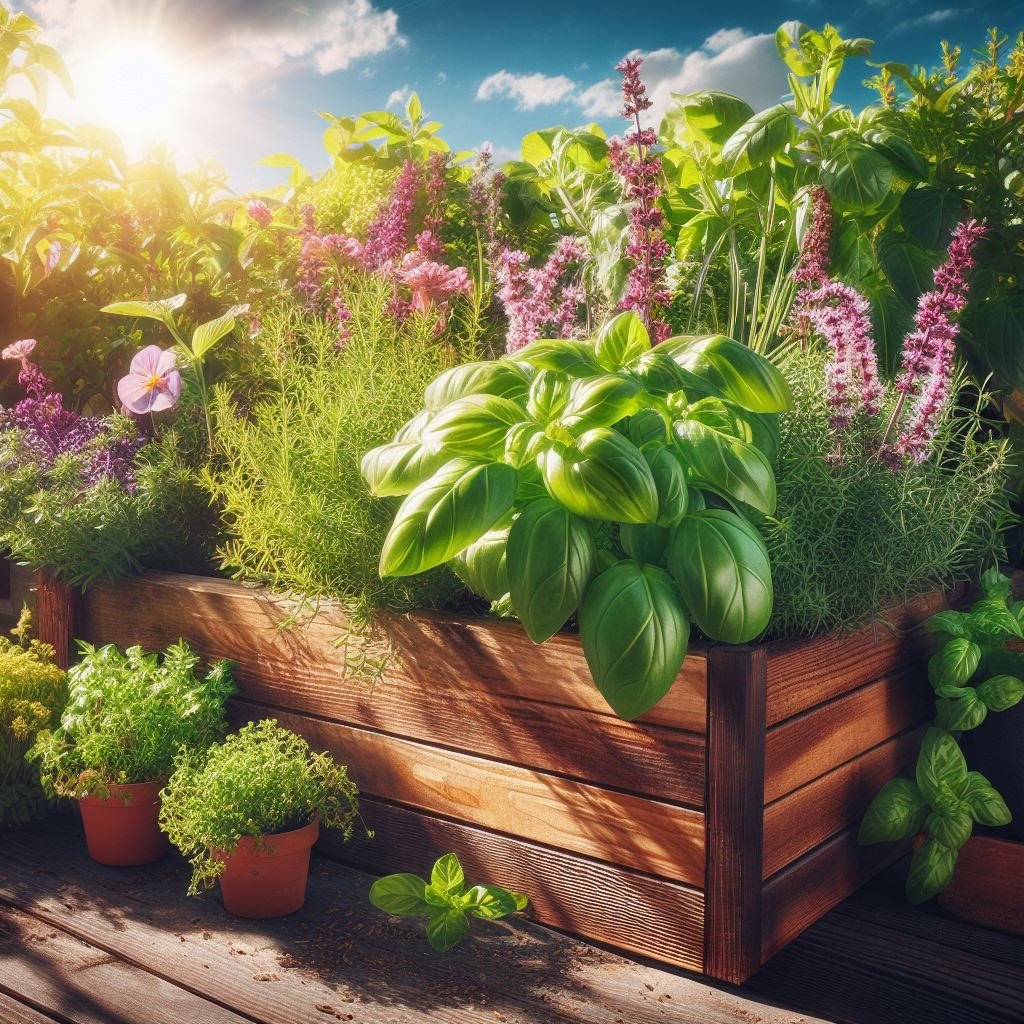In the hustle and bustle of modern living, cultivating your herb garden might seem like a far-fetched dream. But what if we told you that you could grow a plethora of fresh, organic, and flavorful herbs right in your backyard or even indoors without the need for excessive space or burdensome maintenance? Welcome to our comprehensive guide on compact, low-maintenance herbs, your one-stop resource for turning this dream into a reality. This guide is designed to help everyone, from seasoned gardeners to beginners, to explore the world of herbs, understand their diverse benefits, and learn the art of growing them with minimal effort.
So, let’s embark on this green journey and bring the aroma of fresh herbs into our homes and lives. Welcome to your very own kitchen garden!
Introduction to Compact Herbs
Compact herbs have been gaining popularity due to their low-maintenance nature and the convenience they offer. These miniature versions of traditional herbs are a practical choice for urban dwellers with limited gardening space or those who simply want a fuss-free way to enjoy fresh herbs at home. Compact herbs are a diverse group ranging from culinary favorites like compact basil and thyme to aromatic delights like dwarf lavender.
Despite their smaller size, these herbs pack the same flavor punch as their larger counterparts, if not more. They’re perfect for adding a fresh touch to your dishes or filling your home with delightful scents. One of the most appealing aspects of compact herbs is their low-maintenance nature.
These hardy plants are typically resistant to pests and diseases. They also tend to be drought-tolerant, which means they require less watering compared to other plant varieties. This makes compact herbs an ideal choice for busy homeowners who want a green touch in their homes but don’t have the time for high-maintenance gardening.
Moreover, compact herbs are a great choice for container gardening. They thrive in pots, boxes, and even hanging baskets, allowing you to maximize your gardening space. You can even grow them indoors, provided they get enough sunlight.
In conclusion, compact herbs are a practical and versatile group of plants that bring a whole lot of benefits. They’re space-saving, flavor-packed, and low-maintenance. Whether you’re a seasoned gardener or a beginner, these compact herbs can surely find a place in your home.
What Are Compact Herbs?
Compact herbs are small, space-efficient varieties of common herbs that are perfect for gardening enthusiasts who have limited space or prefer a low-maintenance approach to gardening. These petite plants can thrive in small containers, window boxes, or tiny garden plots, making them ideal for urban dwellers or those simply seeking simplicity. Despite their diminutive size, compact herbs do not skimp on flavor or fragrance, offering all the aromatic charm and culinary benefits of their larger counterparts.
From compact basil to dwarf dill, these little wonders are proof that good things do indeed come in small packages.

Benefits of Compact Herbs
Integrating compact, low-maintenance herbs into your lifestyle can be incredibly beneficial. Not only do they add a fresh twist to your culinary creations, but they also serve as natural air purifiers. These petite powerhouses require minimal care, making them perfect for busy individuals who appreciate the joy of gardening but lack ample time or space.
Moreover, these compact herbs can be grown indoors, providing year-round access to fresh produce. So, whether you’re a culinary enthusiast or a green-thumb hobbyist, these compact herbs can be a delightful addition to your urban living. Harness the power of compact herbs and let nature nurture your home and health.
Top Compact Herbs for Your Garden
Cultivating a herb garden is not only a fun and rewarding hobby, but it can also provide you with fresh, aromatic herbs for your culinary ventures. However, not everyone is blessed with an abundance of garden space. This is where compact, low-maintenance herbs come into the picture.
These can be nurtured in a small corner of your garden, a tiny balcony, or even on a kitchen windowsill. Compact herbs are perfect for those who are short on space but big on flavor. These little powerhouses can add a burst of freshness to any meal, from salads to soups, roasts to pasta.
Plus, they are easy to grow and require minimal care, making them an ideal choice for novice gardeners or busy individuals. Some compact herbs to consider for your garden include thyme, oregano, and basil. These herbs are not only small in stature but they are also incredibly resilient and can thrive in a variety of environmental conditions.
Thyme, for example, is a hardy perennial that can survive even in dry, rocky soils. Oregano, on the other hand, thrives in well-drained soil and full sun. Basil, while it prefers a warm, sunny spot, can also tolerate part shade.
Other compact, low-maintenance herbs worth considering are chives, parsley, and rosemary. These herbs are relatively easy to grow, require little to no pruning, and can be harvested multiple times throughout the growing season. In addition to their culinary uses, these compact herbs can also enhance the aesthetic appeal of your garden or home.
Their vibrant green foliage and delicate flowers can add a touch of beauty to any space. Moreover, they emit a delightful fragrance that can permeate your home or garden, creating a calming and peaceful ambiance. In conclusion, compact, low-maintenance herbs are a boon for those with limited garden space or time.
Parsley: A Compact Herb
Parsley, a small yet impactful herb, perfectly encapsulates the essence of compact, low-maintenance herbs. This unassuming green garnish, often relegated to the sidelines, is a kitchen superstar. It’s resilient, thriving in various conditions, while its subtly peppery flavour enhances diverse dishes.
Its compact size means it comfortably sits in a small pot on your kitchen windowsill or thrives in the smallest of gardens. Don’t be fooled by its humble size, this herb is a powerhouse of nutrients and flavor, making it a must-have in your culinary toolkit. So, invite Parsley to your kitchen, a little herb, with a big impact.
Thyme: A Low-Maintenance Herb
Thyme is a champion among compact low-maintenance herbs, bringing not only culinary delights but also an effortless gardening experience. This humble herb thrives in a variety of conditions, making it a perfect choice for those seeking a fuss-free addition to their kitchen garden. Its small size and minimal care requirements make it a perfect fit for urban dwellers with limited space.
Plus, thyme’s aromatic foliage adds an extra layer of charm to your green space. So, why not try your hand at growing thyme? It’s a small herb that promises big rewards!

Basil: An Easy-Grow Herb
Basil, a delightfully aromatic addition to any kitchen garden, stands out among compact, low-maintenance herbs. Its modest size and no-fuss nature make it an easy-grow herb, perfect for novice gardeners and seasoned green thumbs alike. With its rich flavor profile, basil not only enhances culinary creations but also adds a dash of greenery to your indoor or outdoor space.
The herb’s resilience against common pests and diseases further elevates its status as an ideal choice for a fuss-free, productive gardening experience. Indeed, basil proves that good things do come in small, low-maintenance packages.
Caring for Your Compact Herbs
Cultivating a garden brimming with compact low-maintenance herbs is not just a dream for seasoned gardeners but also a delight for those with a green thumb. With their exquisite aroma, vibrant colors, and culinary benefits, these compact herbs add a touch of nature to your space without demanding an extensive care routine. These mini wonders of nature are perfect for small city apartments or suburban houses with limited gardening space.
Compact herbs like thyme, rosemary, parsley, and basil thrive even in small pots, window boxes, or tiny backyards. What makes them more appealing is their low-maintenance nature. They require minimal watering, a bit of sunlight, and a touch of love to flourish.
However, even these hardy species need a bit of attention. Pruning is essential to maintain their compact size and to stimulate new growth. Regular harvesting of these herbs not only provides you with fresh ingredients for your culinary masterpieces but also encourages the plants to grow more abundantly.
Soil selection is another vital aspect when it comes to growing compact herbs. A well-draining soil enriched with organic matter caters to the needs of these plants. A balance between moisture retention and proper drainage ensures that the roots of these herbs don’t stay waterlogged, preventing rot and diseases.
In the world of gardening, compact low-maintenance herbs are like versatile little soldiers. They not only add visual appeal to your space but also serve a practical purpose in your kitchen. With a bit of care and attention, these miniatures can add a lush green touch to your home, making it a sanctuary of nature.
Watering Your Compact Herbs
Efficient watering is vital to keep your compact, low-maintenance herbs thriving. However, striking the right balance can be tricky. Overwatering can lead to root rot, while underwatering can cause wilting.
The secret lies in understanding your herb’s unique needs. For instance, Mediterranean herbs like thyme and rosemary prefer drier conditions, while herbs like parsley and basil thrive in moister environments. Remember, it’s not just about watering; it’s about watering wisely.
So, don’t just quench their thirst, tailor your watering regime to their individual preferences and watch your compact herbs flourish.
Pruning Your Compact Herbs
Maintaining a beautiful and practical herb garden doesn’t have to be a daunting task. With compact, low-maintenance herbs, you can enjoy fresh flavors without the strain of constant upkeep. But, even these easy-care plants benefit from occasional pruning.
Pruning not only helps to control the size of your herbs, but it also encourages healthier, more productive growth. Plus, it’s an opportunity to harvest and use your herbs in the kitchen. With the right techniques, you can keep your compact herbs thriving and your green thumb happy.
So, let’s delve into the art of pruning your compact herbs.
Harvesting and Storing Compact Herbs

Harvesting and Storing Your Compact Low-Maintenance Herbs For the urban gardener or those with restricted outdoor space, compact low-maintenance herbs are a blessing. They not only add a splash of greenery to your surroundings but also provide a fresh supply of flavors for your culinary adventures. However, the key to maximizing the yields from these miniature herb gardens lies in the correct harvesting and storing techniques.
When it comes to harvesting, timing is everything. Most herbs reach their peak flavor just before they flower, making this the ideal time to harvest. Using a sharp pair of scissors, carefully snip off the top third of the plant, ensuring not to damage the growing tips.
This helps the plant to continue growing and producing more aromatic leaves for your kitchen. In the case of storing, the goal should be to retain as much flavor and aroma as possible. One effective way to store these herbs is by drying them.
Simply tie small bunches of herbs together and hang them upside down in a warm, dry, and well-ventilated area away from direct sunlight. Once the herbs are completely dry, crumble them into airtight jars and store in a cool, dark place. Another method is freezing.
Rinely chop the herbs, place them in an ice cube tray, cover with water, and freeze. Once frozen, transfer the cubes into freezer bags and use them as needed. This way, you can enjoy the fresh taste of your compact, low-maintenance herbs all year round.
In conclusion, the essence of compact low-maintenance herbs transcends their physical size. With the right harvesting and storing techniques, these tiny powerhouses can add a remarkable kick to your dishes, making every meal an aromatic delight.
Frequently Asked Questions (FAQs)
What are some examples of compact low-maintenance herbs?
Some examples of compact low-maintenance herbs include thyme, rosemary, oregano, and sage. These herbs are small in size and do not require a lot of care, making them perfect for beginners or those with limited space.
How to care for compact low-maintenance herbs?
Compact low-maintenance herbs generally require well-draining soil, plenty of light, and moderate watering. It’s important to avoid overwatering as this can lead to root rot. Most of these herbs also prefer cooler temperatures
Can compact low-maintenance herbs be grown indoors?
Yes, compact low-maintenance herbs can be grown indoors. They are perfect for indoor gardens due to their small size and minimal care requirements. However, they will need a sunny windowsill or a grow light to thrive
What are the benefits of growing compact low-maintenance herbs?
Compact low-maintenance herbs are great for adding fresh flavors to your meals. They are also beneficial for those who want to garden but have limited space or time. Additionally, these herbs can also be ornamental, adding beauty to your home or garden.
Where can I buy compact low-maintenance herbs?
Compact low-maintenance herbs can be purchased from nurseries, garden centers, or online. They often come in small pots ready for planting
Can compact low-maintenance herbs be used in cooking?
Absolutely! Compact low-maintenance herbs like thyme, rosemary, oregano, and sage are commonly used in a variety of cuisines for their distinct flavors and aromas. They can be used fresh or dried, depending on the recipe.
Conclusion
Compact low-maintenance herbs are the perfect solution for those who love to cook with fresh ingredients, but lack the time or space for a traditional garden. They bring the farm-to-table concept right to your kitchen, or even your living room, without the fuss of tending to a large outdoor space. They’re like the witty dinner guests of the plant world – small in size, but big in flavor and charm.
So next time you reach for a dried herb, think about the zesty potential of these horticultural heroes. They might just spice up your life in more ways than one.
